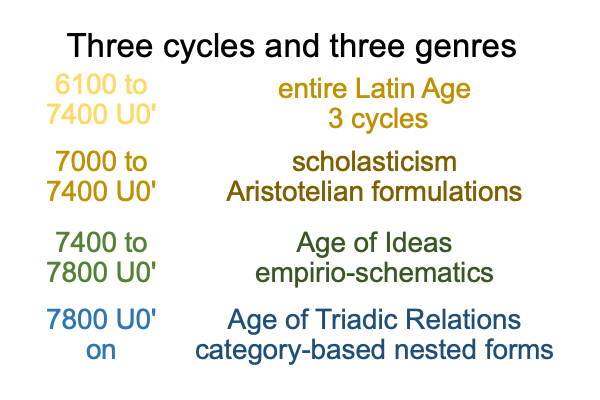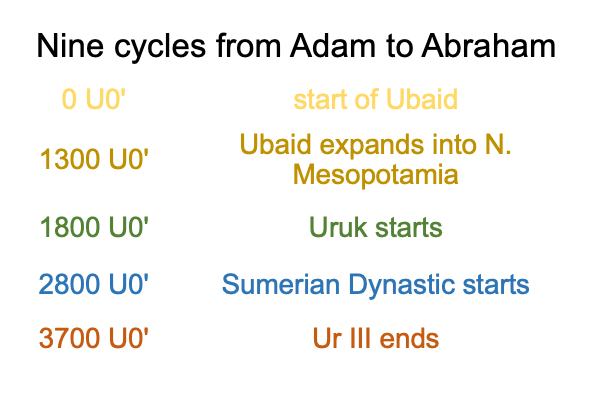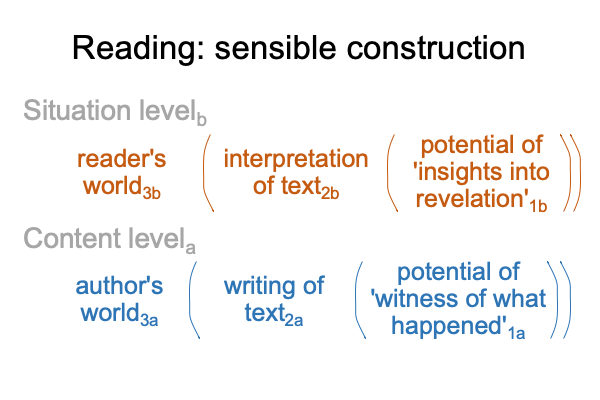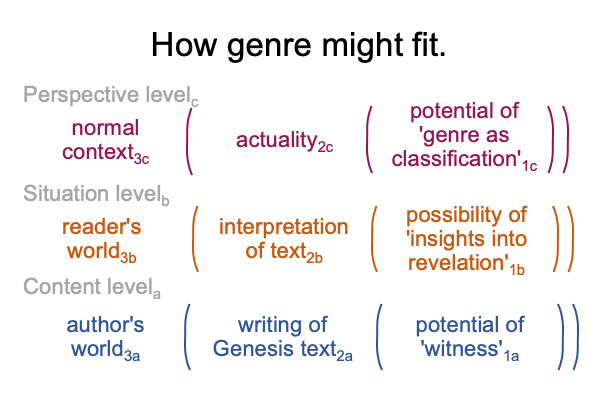Looking at the Book (2015) Genesis: History, Fiction or Neither? (Part 11 of 38)
0035 The third point in the previous blog seems odd, almost unbelievable.
Somehow, a discussion of genre allows the claim that Gen 1-11 offers as an insider’s tale of the emergence and tribulations of one of the world’s first civilizations.
0036 So, what does the insider think about how the Ubaid begins?
James Hoffmeier, the first contributor, says (more or less), “Genesis 1-11 begins the story of redemption (for all) with the loss of God’s presence, intimacy between God and humans, and access to the tree of life.”
0037 Does that sound like the loss of the Lebenswelt that we evolved in?
Before the first singularity, there is no history. There is no concept of history. No gesture-word can picture or point to “history”. Instead, traditions are timeless, just like the circles of the North American Plains Indians and the dreamtime of the Australian Aborigines. As long as the group lives, no one really dies. The dead become ancestors.
After the first singularity, there is history. Adam and Eve are cast out of the Garden of Eden. There is no going back.
0038 The scientific hypothesis of the first singularity changes the landscape of inquiry into what it is to be human.
Biblical scholars, such as James Hoffmeier, sense that a purely material interpretation of human evolution cannot stand. Similarly, a purely instrumental interpretation of the Bible cannot stand.
For centuries, Biblical inquiry is dominated by a Wissenschaftlich seeking to identify authorship through the grammar and the vocabulary of the text itself. Today, Wellhausen’s four-source hypothesis, although interesting, is moribund.
0039 That will change under the challenges posed by the hypothesis of the first singularity.
What if Gen 1-11 is an insider’s tale of the birth and development of the Ubaid of southern Mesopotamia, the first culture on Earth to practice speech-alone talk?
If it is, its lessons entangle all civilized humanity.




